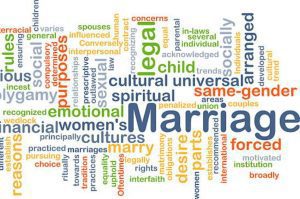Nadia Shradh Controversy— June 23, 2025 — In a tragic and troubling reminder of entrenched social prejudices, a family in Nadia district recently performed the shradh (Hindu death rites) for their own daughter after she chose to marry a man from a different faith. The case, which has sparked heated debate across the region, highlights the ongoing struggles of interfaith couples and the pressure they face due to long-standing societal norms.
Incident Sparks Shock and Concern
The incident took place in a small village in Nadia, where villagers gathered to conduct the symbolic funeral ceremony. The distraught parents, though present at the ritual, remained emotionally distant — saying they had “lost” their daughter forever the day she decided to defy family expectations and marry someone outside her religion.
While the couple had hoped to receive their parents’ blessings, they now face deep isolation and condemnation in their community. According to local witnesses, traditional Brahmin priests were called to oversee the ritual, which was completed with all customary practices — including lighting a funeral pyre and performing final prayers.
Interfaith Marriages Still Taboo in Many Communities
Though India’s legal framework permits consenting adults to marry across religion and caste lines under the Special Marriage Act of 1954, social realities often lag far behind legal protections. Even in 2025, stigma surrounding interfaith relationships — especially in rural pockets — can lead to ostracization, threats of violence, and permanent family estrangement.
More on interfaith marriage laws and protections can be found at:
→ https://legislative.gov.in/sites/default/files/A1954-43.pdf (Government of India — Special Marriage Act)
Nadia Shradh Controversy: The Role of Community Pressure
Community members in Nadia defended the family’s decision, saying that their actions were driven by social pressure. “If they accept her back,” said one elder, “our village will talk forever. Inter-caste and interfaith marriages are dishonorable here.”
Such sentiments reflect the deep-rooted patriarchal mindset where honor is often tied to women’s choices. Advocacy groups say this underscores the need for counseling, awareness campaigns, and local legal aid to empower youth.
More on gender and social reform initiatives can be found at:
→ https://www.wcd.nic.in/ (Ministry of Women & Child Development)
Legal Support and Safe Spaces
While the family may have turned its back on the daughter, local human rights organizations and lawyers have reached out to offer legal support. Advocates emphasize that the couple has the right to live freely and without harassment under constitutional protections.
NGOs also help interfaith couples register their marriages securely under the Special Marriage Act and advise them on personal safety measures if they face intimidation.
More information on legal aid is available at:
→ https://nalsa.gov.in/ (National Legal Services Authority)
Psychological Impact of Familial Rejection
Experts in mental health warn that rejection by one’s own family can cause profound trauma. Psychologists working with such couples highlight feelings of shame, depression, and anxiety resulting from these incidents.
As Dr. Suman Sengupta, a Kolkata-based psychiatrist, noted:
“When a person is shunned by their parents and community, especially after making a deeply personal life choice, they experience immense emotional pain. This can have lifelong consequences.”
More on mental health and counseling support can be found at:
→ https://www.mohfw.gov.in/ (Ministry of Health and Family Welfare — Mental Health Resources)
Calls for Broader Social Change
Progressive leaders and civil society members have called for educational initiatives to promote interfaith understanding and acceptance in schools and community centers. Awareness drives about constitutional freedoms and the dignity of personal choices can help slowly erode these entrenched prejudices.
Meanwhile, the Supreme Court of India has also reaffirmed the right to choose one’s partner without fear or intimidation — a crucial legal backbone for interfaith couples.
More about Supreme Court verdicts on personal freedoms is available at:
→ https://www.sci.gov.in/ (Supreme Court of India)
Conclusion: Breaking Barriers with Compassion
The heartbreaking ritual performed in Nadia is a powerful reminder of the social work that remains to be done to ensure that every individual — regardless of gender, religion, or caste — can live a life of dignity and choice. Interfaith marriages may challenge tradition, but they also serve as a catalyst for progressive change.
As society grapples with these issues, a balanced conversation is vital — one that respects both tradition and personal freedoms. Education, legal support, mental health awareness, and a firm commitment to constitutional values will help bridge the chasm between rigid customs and individual rights.
Also read: Home | Channel 6 Network – Latest News, Breaking Updates: Politics, Business, Tech & More


